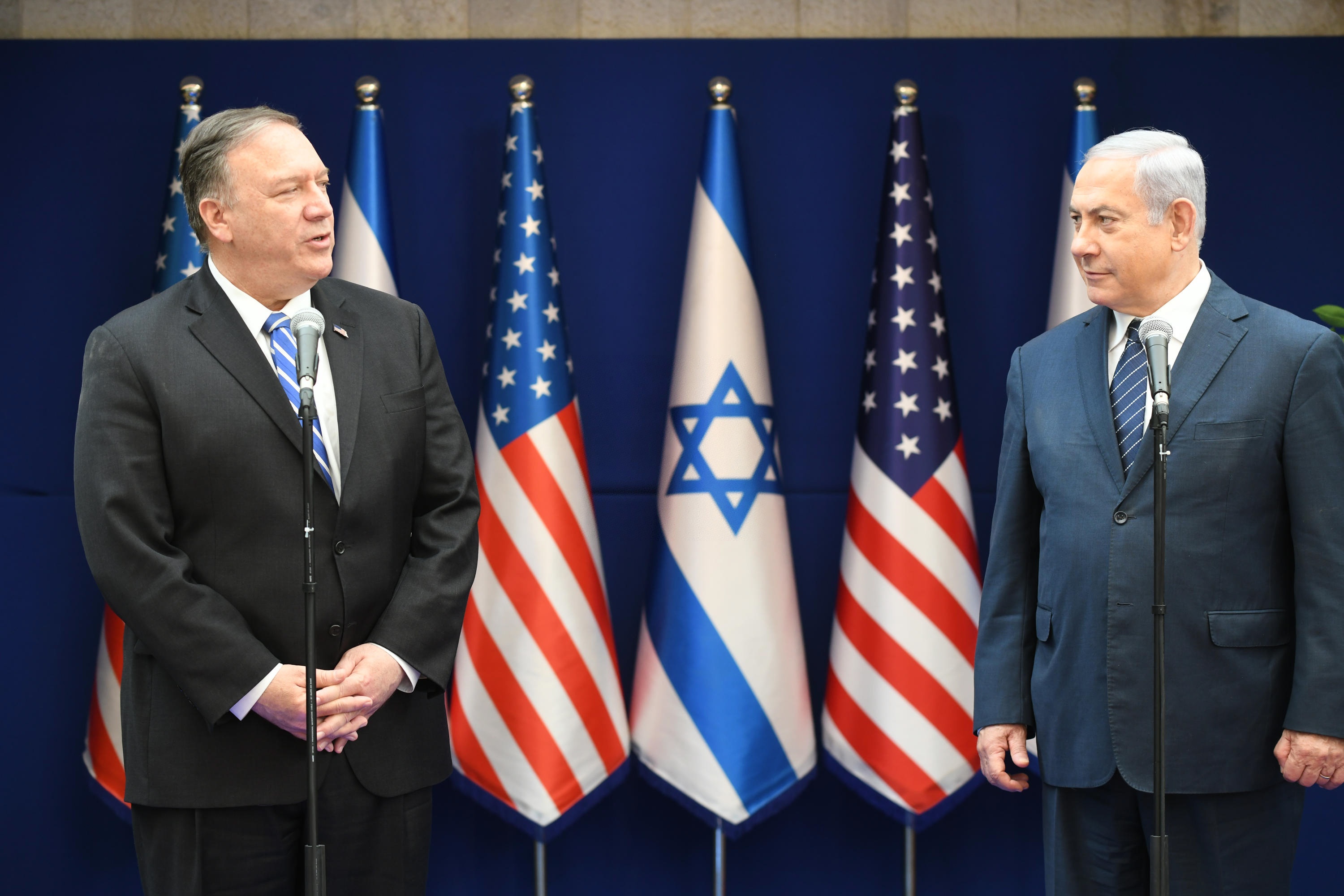Pompeo settlement speech benefits nobody
- By Jin Liangxiang
 0 Comment(s)
0 Comment(s) Print
Print E-mail China.org.cn, November 26, 2019
E-mail China.org.cn, November 26, 2019

Mike Pompeo, American Secretary of State, made a remark on November 18 that "establishment of Israeli civilian settlements in the West Bank is not, per se, inconsistent with international law."
This marks a turning point of the American policy on the settlements issue, which is detrimental to the interests of all parties.
In 1978, upon request by then U.S. Secretary of State Cyrus Vance, Mr. Herbert Hansell, legal advisor of the State Department, wrote a letter about the legal status of Israeli settlements in the territories occupied during the 1967 Arab-Israeli War.
The letter clearly stated that both the action to push the original civilians out of the occupied territories and to move Israeli civilians in, were inconsistent with international law.
This document provided the basis of the American policy on the settlements issue ever since. Though the U.S. administrations all along have kept to pro-Israeli position on the latter's relations with the Palestinians, they always adhered to this basic principle that the settlements were illegal, and this applied to both Democratic or Republic governments.
George H. W. Bush and Barack Obama are worthy of mention in this regard. The former even threatened to suspend military aid to Israel to try and stop it building settlements in 1991 in the eve of the Madrid Peace Conference. During his second term, Barack Obama abstained on a U.N. Security Council resolution requesting Israel to freeze the work on new settlements, the first time the U.S. didn't veto a resolution against Israel.
These two men have proved to be the most resistant presidents on this sensitive issue.
Finding the settlements as not necessarily illegal is not only a blatant betrayal to U.S. commitments to the Palestinians, but also a departure of the long-held American position.
Actually, this latest move is not without precedent, as it is also under President Donald Trump's administration that the U.S. recognized Jerusalem as Israel's capital, and moved the Embassy from Tel Aviv to Jerusalem. The U.S. had also recognized the Israel's annexation of one-third of the Golan Heights area, which Israel took from Syria in the 1967 war.
Mike Pompeo and Israeli leader Benjamin Netanyahu might think the remark helps promote their political interests. Pompeo regards support of Jewish organizations as critical for his continued political life, while Netanyahu could trumpet his success in safeguarding Israel's interests with his good relations with the U.S.
However, this blatant recognition of territories occupied by means of war surely not only hurts the Palestinians, but also undermines the interests of Israel and the U.S. in the longer term.
Israel might feel very comfortable with American support and its own incomparable strength and advantage in the Middle East. However, Israel's future still largely depends on whether it can have peaceful relations with its neighbors.

However, with the settlements issue unsettled, how can Israel achieve peace with the Palestinians, and without peace, how can Israel protect its security?
Although Arab countries cannot get the occupied territories back now, their enmity will never lapse naturally so long as the territories are not returned. Currently, Israel is seeking to improve its relations with Gulf Arab countries, and has made meaningful progress in the last couple of years.
However, the new move will certainly interrupt the process as Gulf Arab countries will face serious domestic challenges if they continue a friendly attitude toward Israel.
The U.S. also faces its interests in the Middle East being seriously undermined. The U.S. has long been expected to play a fair and balanced mediator role in the region, despite never really being worthy of such an expectation. As the U.S. touches bottom in terms of international political ethics, its image of being a leader of liberal democracy is being further tarnished, and its prestige, whatever it has, is being undermined.
This irresponsible remark by Pompeo will also produce very negative long-term implications in the international community. It is the foundation of international law that territories should not be taken by military means, and this is also part of the U.N. Charter.
America's recognition of the territories taken by force provides a very bad example, encouraging others to do the same. The Middle East is facing fierce geopolitical competition nowadays, so will some other regional powers do the same? And what about the rest of the world? It is really a key question.
All in all, Pompeo's latest remark is good for nobody, but only serves the political interests of himself and maybe his boss. While they may gain, the U.S. pays.
Dr. Jin Liangxiang is Senior Research Fellow with the Center for West Asian and African Studies, Shanghai Institutes for International Studies. For more information please visit:
http://www.china.org.cn/opinion/jinliangxiang.htm
Opinion articles reflect the views of their authors, not necessarily those of China.org.cn.
If you would like to contribute, please contact us at opinion@china.org.cn.






Go to Forum >>0 Comment(s)